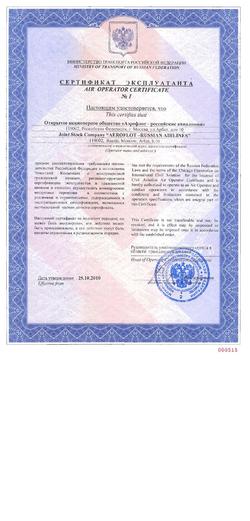
An air operator's certificate (AOC) is the approval granted by a civil aviation authority (CAA) to an aircraft operator to allow it to use aircraft for commercial air transport purposes. This requires the operator to have personnel, assets and systems in place to ensure the safety of its employees and of the flying public. The certificate lists the approved aircraft types, each registration number approved to fly, the approved flying purpose, and in what area the holder may operate (such as specific airports or geographic region).